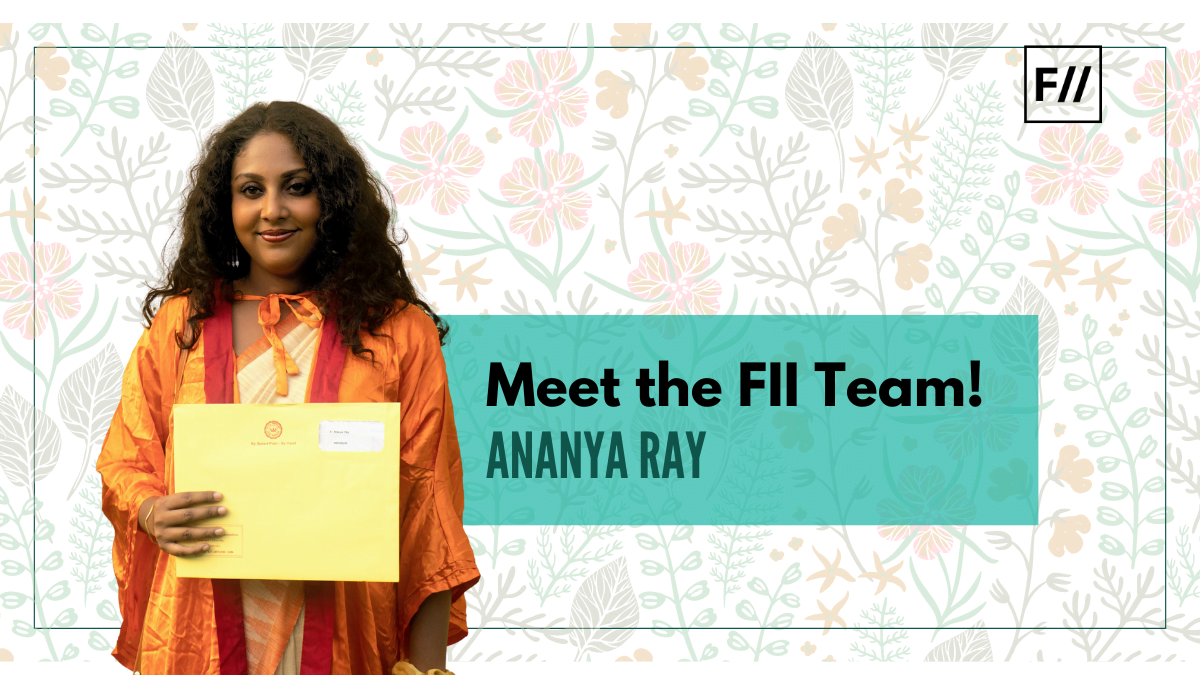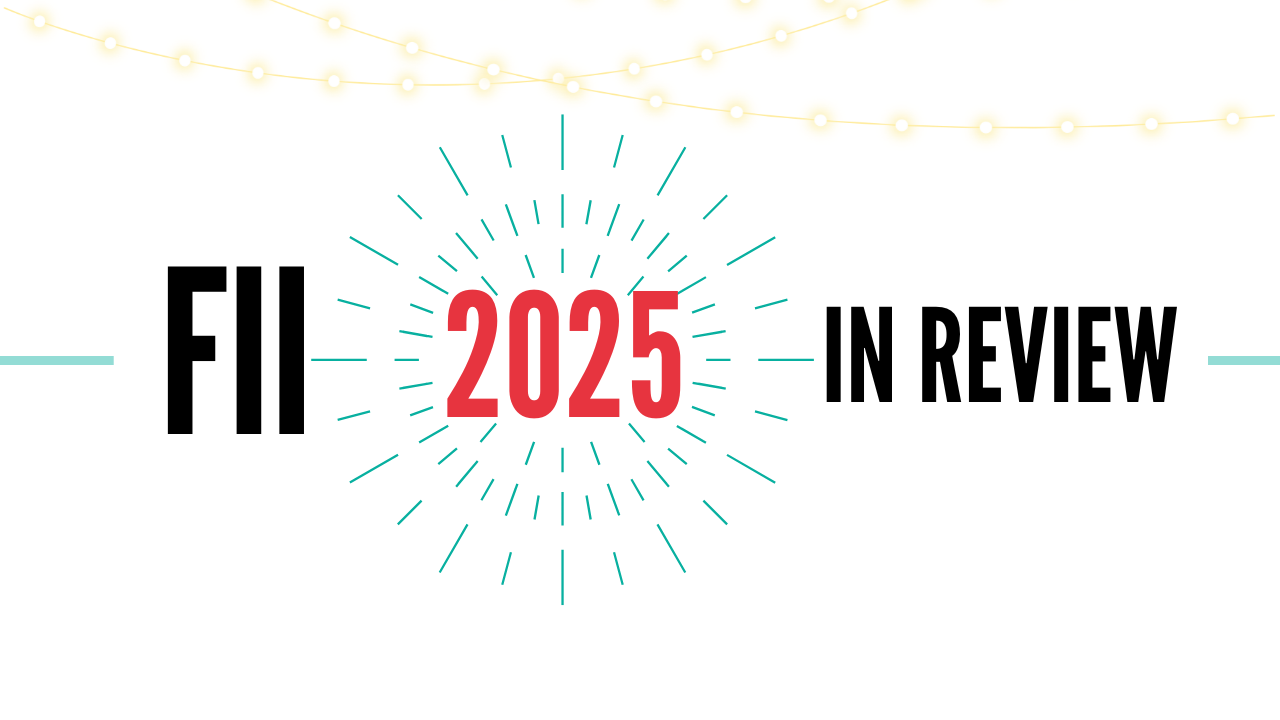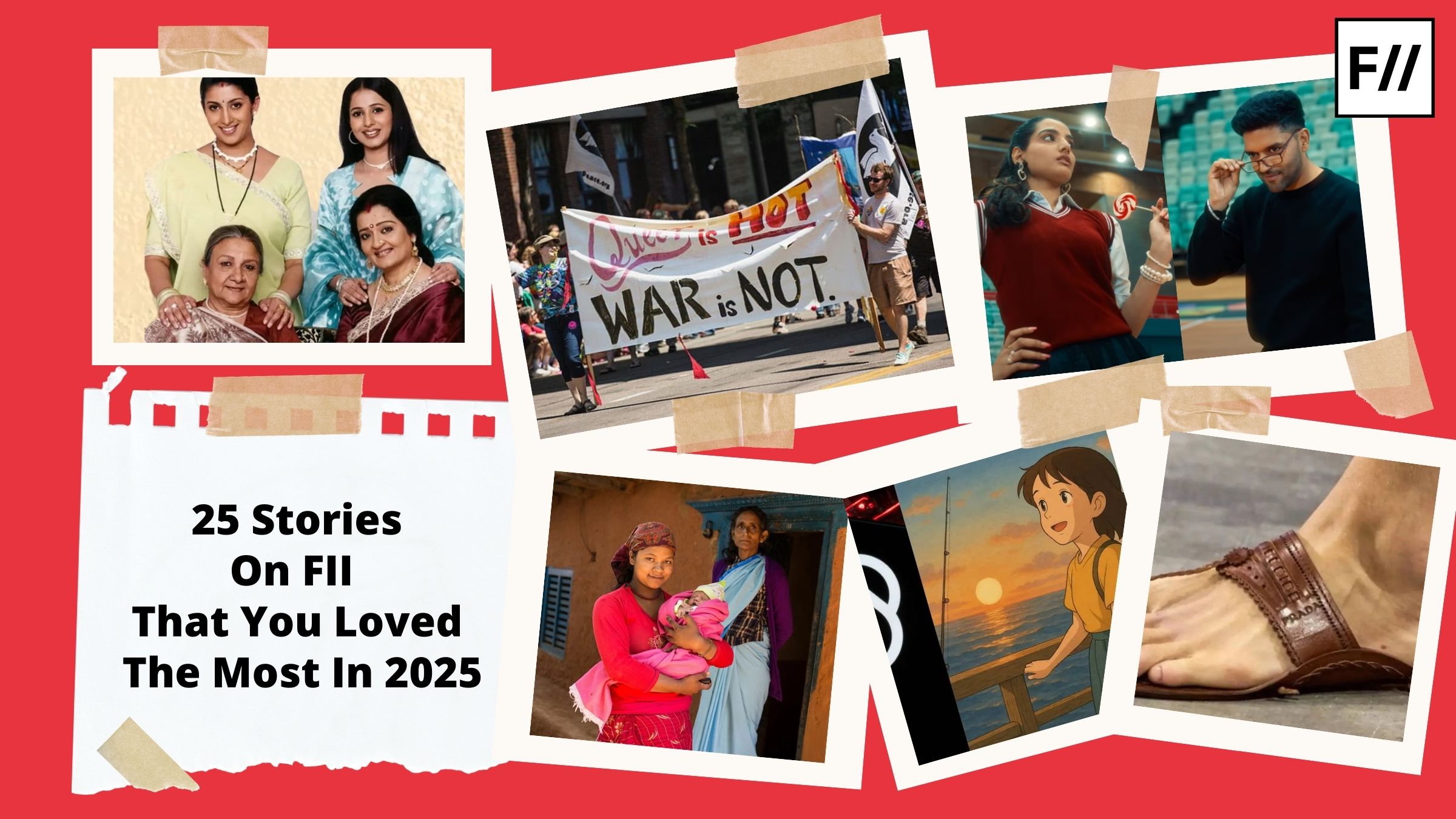As part of FII’s Meet the Team series, we are featuring former and current employees who have worked with or are working with us currently since the inception of FII. Feminism in India as a digital intersectional feminist media platform would not exist if not for these incredible individuals who have helped build this organisation to make what it is today.
Today, we’re chatting with Ananya Ray who is the Assistant Editor (English) at FII. As a journalist, she is interested in gender, popular culture, and queer rights. Being the daughter of a refugee family of Partition survivors, she is committed to documenting the oral and anecdotal history of her and other such families. In her time as an undergraduate and Master’s student of English literature in Kolkata, she has been engaged in research on the culinary memory of Partition survivors, the subversive potential of female sadness in the present neoliberal world, and the state of queer activism in University campus spaces, with a special focus on her alma mater, Jadavpur University. She is especially interested in writing reports about gender-based violence in academic spaces and articles on the current sorry political state of our nation.
Besides writing and advocating for intersectional social justice, she also enjoys listening to music, singing, and devouring books from cover to cover. Being a foodie, she likes exploring new places to eat in and around her city. Ananya is also a curly hair content creator on Instagram.
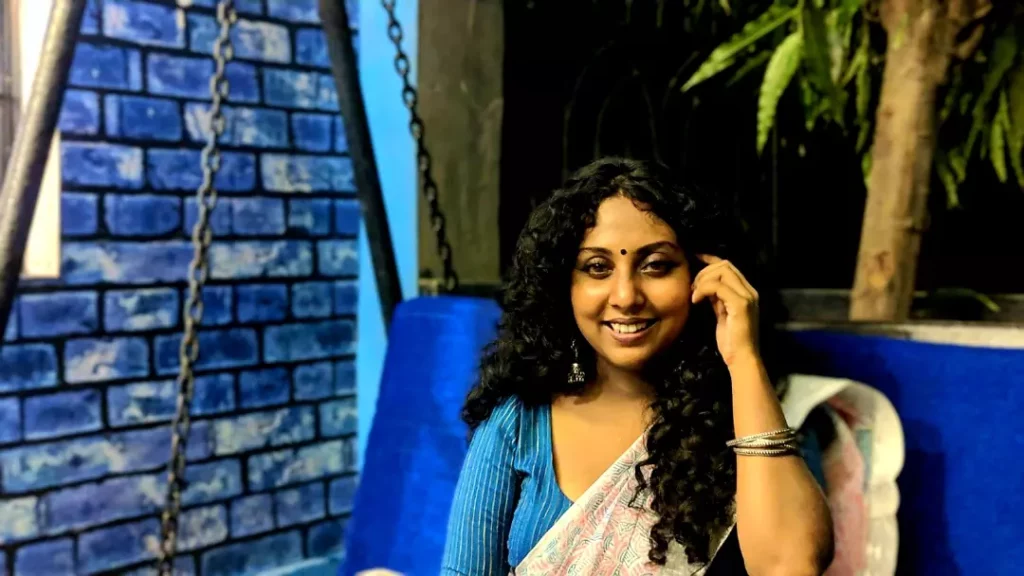
FII: What do you like most about being a part of the FII family?
Ananya: The best thing about being a part of FII is that I get to perform and express my politics through my writing without the fear of censorship or erasure. Very few workplaces in India remain that are so staunch in their commitment to the freedom of thoughts and ideas and are brave enough to criticise those abusing power. Never in my time at FII have I been told to ‘tone down my rage or activism’- a statement I have always heard from past employers or mentors. FII allows and encourages me to channel my rage at the general state of the world into impactful pieces of writing that holds the power to make change happen. The FII team is empathetic and kind. As sisters in solidarity against the patriarchy, it is heartening to see my colleagues supporting and uplifting each other while practicing their intersectional feminism.
FII: What advice would you give someone joining the organisation?
Ananya: Don’t hold back. Once you’ve become part of FII, let go of all your inhibitions and be a part of the greater social discourse that is taking the world by storm. Be it through writing, editing, posting on social media, or collaborating with like-minded individuals and organisations, practice your politics and be on the right side of history.
FII: How would your colleagues describe you?
Ananya: I’m sure they would describe me as a slightly crazy, ever-enthusiastic, and somewhat creative person. They are certain (I am sure) that I am a foodie (given that I have mentioned it in almost every team meeting) and am fond of reading.
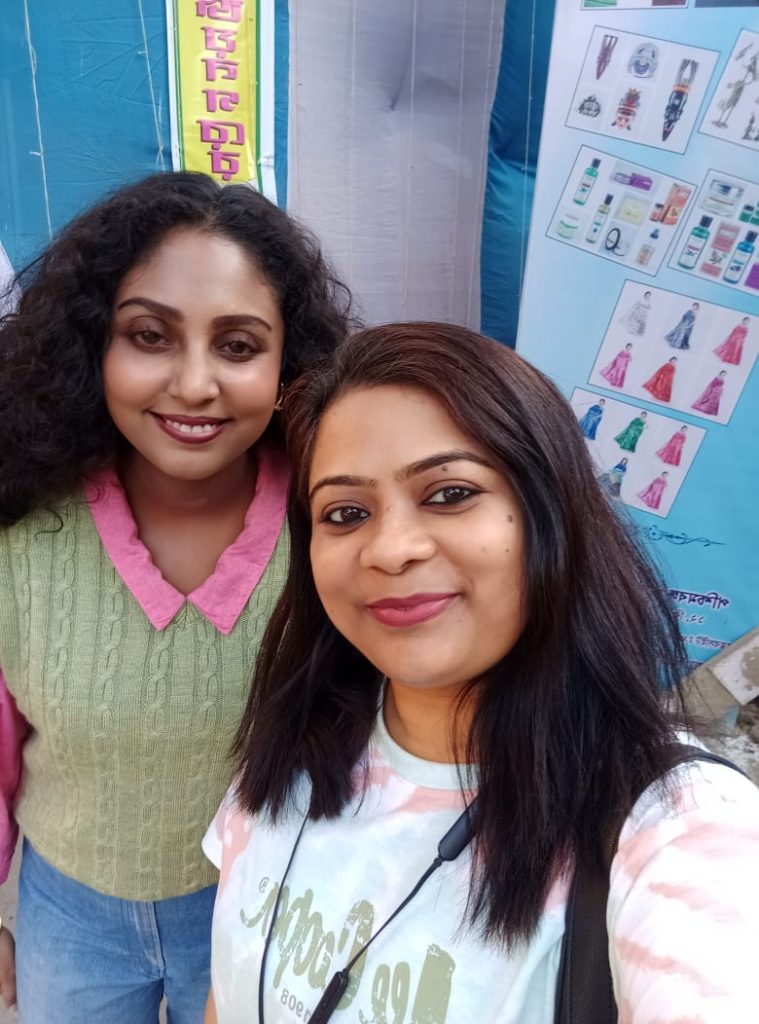
FII: Which fictional character do you identify with and why?
Ananya: I really relate to Ophelia from Shakespeare’s Hamlet. Ophelia is your quintessential dreamy, sad girl who brings forth a light romantic strain to an otherwise bleak revenge tragedy. As a young girl, I had read and written poems about Ophelia and her girl sadness, while admiring John Everett Millais’s painting depicting her drowning and Sarah Bernhardt’s sculpture of her. Ophelia has time and again been alluded to and reproduced in literature and remains an iconic female Shakespeare character. Having played her in a Shakespeare production and written about her extensively, I believe that she is my literary sister in spirit.
FII: What is something that you’re tired of hearing?
Ananya: I wish people would stop asking me to tone down my feminism/activism. I have been hearing this ever since I started identifying as a feminist in my adolescence and somehow, it is almost always savarna cis-men who implore me to turn down my feminism. Of course, there are women, too, who have internalised sexism and are complicit in their dehumanisation, who reprimand me to ‘shut up and stop being a feminist for once’, but the overwhelming number of cis men who think that feminism is an exercise in ‘hating men’ make me understand once again why the patriarchy is alive and kicking.
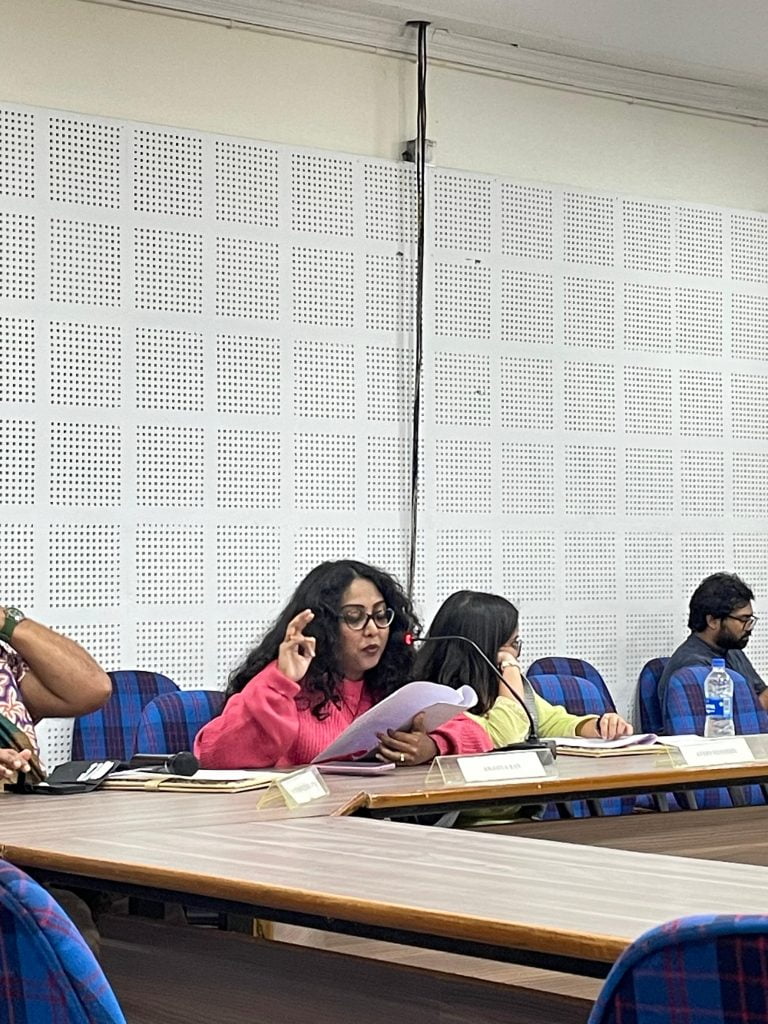
FII: Which feminist movement do you feel particularly passionate about and why?
Ananya: I am particularly passionate about the ecofeminist movements led by indigenous women. Having researched the Indian Adivasi women and their fight for ‘jal, jungle and zameen’, I think their narratives are less explored and must be brought to the forefront of mainstream feminist discourses. Adivasi women, native Pacific Islander women, First Nation and Indigenous women are battling at the frontline of the war on climate change. It is imperative for us as relatively more privileged feminists to pass the microphone to them and amplify their narratives of resistance.
FII: What makes FII a ‘feminist’ organisation?
Ananya: Our commitment to truthful and fair journalism, uncoloured by partisan politics makes us truly ‘feminist’. Our intersectional understanding of situations and crises, allows us to see through multiple layers of privilege and power. Our rejection of the hegemonic power structure and our fresh perspective which is empathetic yet objective and unbiased make us truly feminist.
FII: What’s the most fun thing about your job?
Ananya: Obviously, getting to write ground stories and taking quotes and bytes from a diverse group of people. Often, these perspectives add depth to my understanding of a situation and enrich my politics. These narratives and quotes provide an interesting lens through which I am able to view a situation differently.
FII: Do you remember when and why you decided to work at a feminist organisation?
Ananya: I started calling myself a feminist at age 11. When I was in my undergraduate years at university, I came across feminist media houses like FII, The Swaddle, SheThePeople, WomensWeb etc whose content I strongly resonated with. Ever since I started contributing to platforms like The Wire, eShe magazine, Youth Ki Awaaz, etc during college, I always knew I would like to work in an organisation that prioritised intersectional feminism.
FII: If you had a talk show, which feminist icon would you call and what would you ask them?
Ananya: As a talk show host, I’d like to invite the late Bengali feminist Begum Rokeya Sakhawat Hossain, the author of the first feminist utopia in English ‘Sultana’s Dream’. I would ask her- ‘How exactly did you channel your social activism and feminist politics into a seminal piece of literature that has internationally been proclaimed as the first of its kind? As women, we tend to conjure a dystopia where women are reduced to mere conduits or breeders (take for example, Margaret Atwood’s The Handmaid’s Tale). In a world, where such dystopian narratives are becoming all too real, how do we garner the courage to dream of a utopia, like your Ladyland?’
FII thanks Ananya for her timely and valuable contribution to the organisation. We are incredibly grateful to have her as a part of our team and appreciate her for her deeply insightful work. She can be followed on Instagram and LinkedIn.
About the author(s)
Feminism In India is an award-winning digital intersectional feminist media organisation to learn, educate and develop a feminist sensibility and unravel the F-word among the youth in India.
